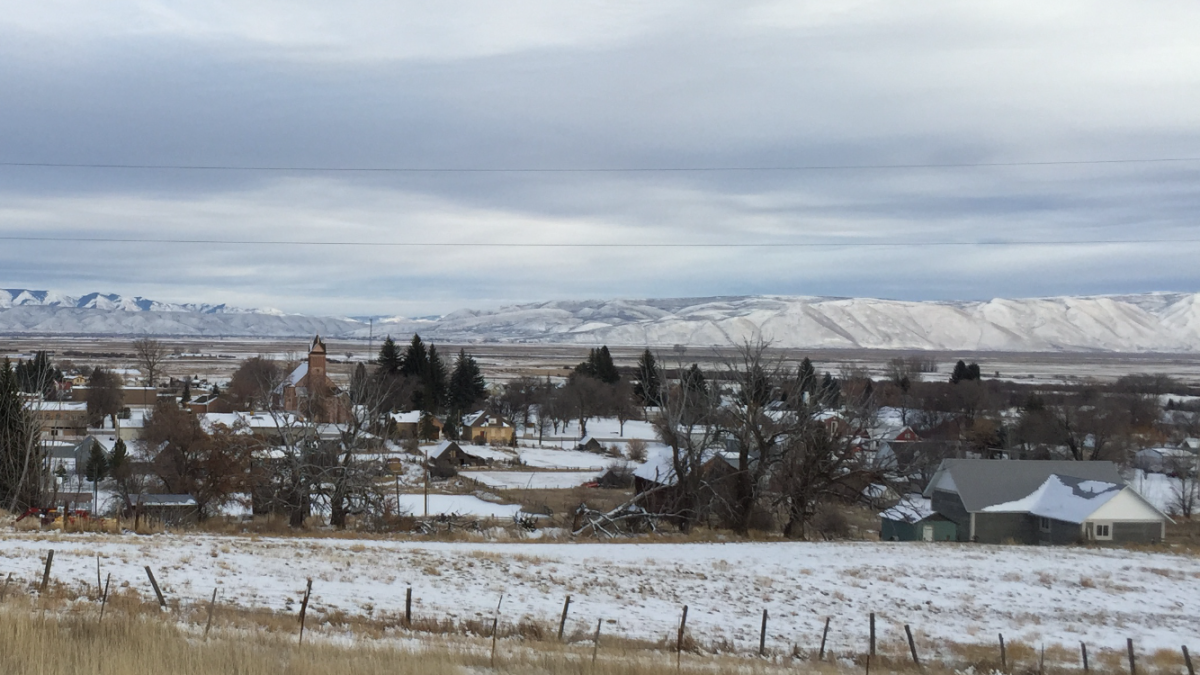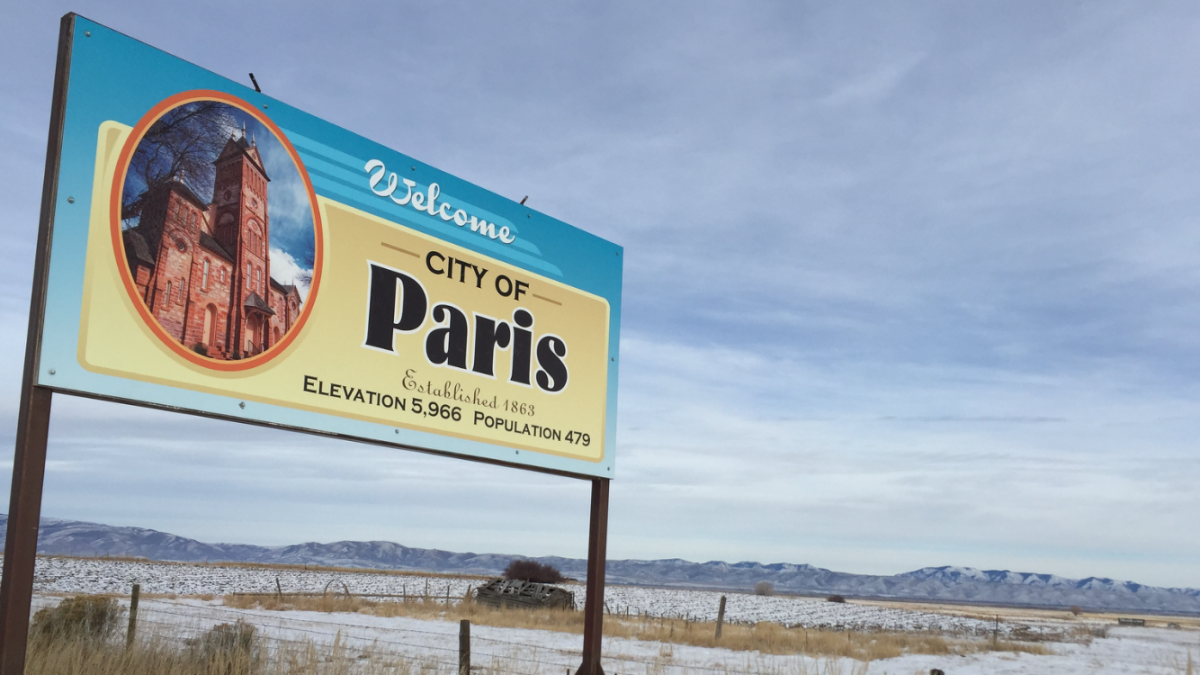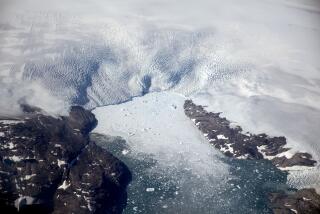In this Paris, climate change just means another long, brutal winter

In tiny Paris, Idaho, climate change isn’t much of a concern. Residents say they worry more about terrorism and the local economy.
In the fall of 1863, two families pushed into the northern edge of Bear Lake Valley, quickly built a log cabin with a dirt floor and then hunkered down to endure the brutal winter.
The settlers had big plans. They wanted to start farms and establish a village with a grand church at its center. As years passed and more people arrived, they decided to name their new village for the man who plotted it, Frederick Perris, but to spell it differently — ambitiously—in honor of a faraway urban ideal.
Yet, just as they were arriving, the world was starting to change. The relentlessly upward arc of carbon emissions that cause climate change was fully underway, fueled by industrialization.
Now world leaders are meeting in the other Paris to try to forge a historic agreement to reduce carbon emissions. And this Paris, despite the miniature Eiffel Towers displayed in the few surviving storefronts, may never have seemed so far away.
“Oh, I can hardly watch it,” Dave Kramer, the general manager of a new phosphate mine under development here, said of the global climate talks. “It makes me laugh because it’s just so silly.”
To hear Kramer and many other people here tell it, not only is there no urgent need to address climate change, but it is questionable whether it is even happening — particularly in their Paris. The winters, after all, are still brutal, if by most accounts less snowy recently here where the southeastern corner of Idaho meets Utah and Wyoming.
“Does it feel warm out there to you?” asked Dave Matthews, a former longtime mayor, on a day when temperature hovered below zero at dawn.
With the summit in France drawing so much international attention, it can be easy to forget that many Americans and elected officials do not view climate change as a serious threat. While that is changing, a Pew Research Center survey in September still showed that just 42% of Americans were “very concerned.”
The survey found that 62% of Democrats were very concerned, but just 20% of Republicans felt the same way.
In this Paris, which is deeply conservative, plenty of people cast the issue as political posturing by Democrats and environmentalists. But many also say, ideology aside, that they simply do not see convincing evidence of change, even as coasts erode in Arctic Alaska and islands shrink in the South Pacific. Many said climate change almost never comes up in conversations, and that people here worry more about terrorism and the local economy.
On Tuesday, in the other Paris, President Obama told world leaders, “This one trend — climate change — affects all trends.”
On Wednesday, Dennis Duehren, the local district ranger for the Caribou-Targhee National Forest, just outside of this Paris, said, “From our little snapshot, it’s a nonobservable trend.”
“It’s certainly on our radar,” Duehren said, referring broadly to his employer, the U.S. Forest Service. “But they’re really not making predictions that they’re ready to hang their hats on for what’s going to happen in this area.”
Duehren said the most noticeable change in the Caribou-Targhee is the encroachment of evergreen conifers into areas where aspen trees have typically thrived, a development he said had to do with wildfire suppression.
So far, he said, his agency’s efforts to replant areas with aspen have been largely successful, suggesting changes in the climate have not extensively altered natural conditions.

Residents of Paris, Idaho, aren’t showing much interest in the climate change summit taking place in the other Paris across the Atlantic.
“There hasn’t been a change that’s super-disruptive,” he said.
Idaho can seem an alternate universe in the climate debate. It ranks near the bottom of the states in carbon emissions, producing much of its electricity from hydropower while importing coal-fired power from elsewhere.
While it is among the states most resistant to federal intervention, it faces some of the least restrictive changes under the Obama administration’s Clean Power Plan, which requires states to reduce pollution from coal-fired power plants. Gov. Butch Otter is among the few Republican governors who so far have not joined lawsuits to fight the plan, though he has criticized it as federal overreach.
Elsewhere in the West, many cities are taking action against climate change, conducting carbon inventories and developing adaptation plans to address potential impacts, such as water shortages and extreme weather. Paris, with fewer than 500 people, is not among them.
Unlike the other Paris, this one stopped growing long ago. The area is so remote and lightly traveled that the first settlers, Mormons, thought they were still in Utah when they declared it home.
Matthews said Paris once was thriving, with 1,500 people, four service stations, two grocery stores, a barber shop, a bank, a hardware store, clothing store, a drug store and a doctor.
Now, Main Street is bleak, anchored by a convenience store that also sells gas and a single restaurant currently open only for lunch. The dance hall is gone, too, as are most of the people.
The impressive Mormon tabernacle, built in 1888, still dominates town, but it is rarely used except for occasional stake meetings. There are far more cattle, horses and sheep visible than human residents. Trumpeter swans float in the parts of Bear Lake that do not freeze over, while bald eagles watch from overhead. Deer are everywhere. Moose wander through, too.
People might be forgiven for finding it hard to believe that anything is changing in this Paris, climate or otherwise.
“They’re more worried about getting the hay in, getting the mama cows ready for winter,” Duehren said. “It’s all about the next day, not the big-picture stuff.”
For news on the environment follow @yardleyLAT on Twitter.
ALSO
Pentagon opening all combat roles in military to women
As Syrian refugees head to Texas, state vows to keep them out
Has the U.S. had 4 mass shootings this year or 353? Estimates vary that much
More to Read
Start your day right
Sign up for Essential California for news, features and recommendations from the L.A. Times and beyond in your inbox six days a week.
You may occasionally receive promotional content from the Los Angeles Times.







